Psychological & Brain Sciences
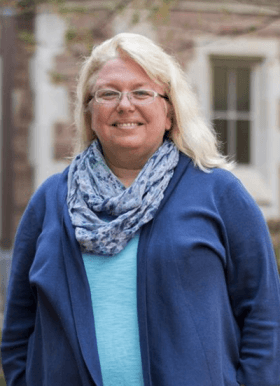
Deanna Barch
Professor, Psychological & Brain Sciences
Vice Dean of Research, College of Arts & Sciences
PhD, University of Illinois
- Email: dbarch@wustl.edu
Dr. Barch’s current research is focused on understanding the interplay among cognition, emotion, and brain function to better understand the deficits in behavior and cognition found in illnesses such as schizophrenia and depression. She is involved with a number of “population neuroscience” projects such as the Adolescent Brain and Cognitive Development study and the Human Connectome Projects that afford the opportunity to develop and apply novel data analytic approaches to understand brain-behavior relationships both within densely-sampled individuals and across large populations.

Ryan Bogdan
Associate Professor, Psychological & Brain Sciences
PhD, Harvard University
- Email: rbogdan@wustl.edu
Bogdan’s research examines how genomic variation and environmental experience contribute to individual differences in neural phenotypes, behavior, and psychopathology.
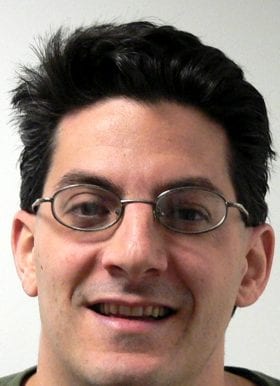
Todd Braver
Professor, Psychological & Brain Sciences, Radiology, and Neuroscience
PhD, Carnegie Mellon University
- Email: tbraver@wustl.edu
Dr. Braver’s research focuses on the neural, computational, and psychological mechanisms that give rise to cognitive control (regulation of thought and behavior based on actively maintained cognitive goals). Current projects examine individual differences in cognitive control function and interactions with affective and motivational processes, through acquisition of large-scale neuroimaging datasets (which include longitudinal and twin-based assessment). These datasets provide unique opportunities to identify trait and state markers of cognitive control via novel data analytic approaches, including neural pattern classification and activation-based dynamical signatures.
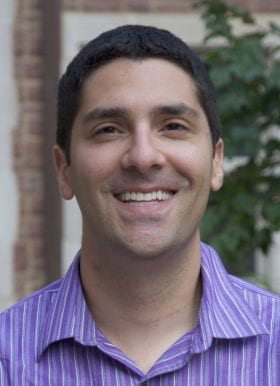
Brian Gordon
Assistant Professor, Radiology
PhD, University of Illinois
- Email: bagordon@wustl.edu
Dr. Gordon's research focuses on understanding healthy aging and neurodegenerative diseases such as Alzheimer Disease. His primary research questions are 1) what can neuroimaging (MRI and PET) and biofluid (CSF and blood) data tell us about biological changes occurring in the brain? 2) How do these changes relate to cognition and the risk for developing dementia? 3) What genetic, environmental, and lifestyle factors influence the aging brain? The high dimensionality of imaging data, the richness of multimodal measures, and the longitudinal nature of clinical cohort studies present challenging analytical questions that can be best answered using the novel analytical approaches which are at the heart of the Computational & Data Sciences PhD program.
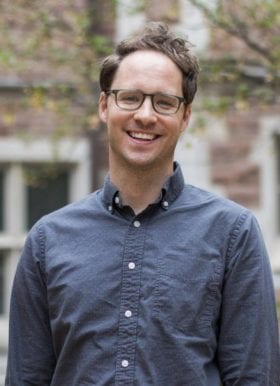
Josh Jackson
Track Chair, Psychological & Brain Sciences
Associate Professor, Psychological & Brain Sciences
PhD, University of Illinois, Urbana-Champaign
- Email: j.jackson@wustl.edu
Josh Jackson's research focuses on the assessment of individual differences in an effort to better understand the link between individual differences and life outcomes (e.g., premature mortality, job market success). His research routinely combines existing large scale longitudinal datasets with additional multimodal data sources ranging from broad country/county/census tract data to more "boutique" datasets such as intensive time series data and biomarker assays. Frequently used quantitative methods include: Bayesian multi-level models, IRT, SEM, and network models.

Wouter Kool
Assistant Professor, Psychological & Brain Sciences
PhD, Princeton University
- Email: wkool@wustl.edu
Kool’s research explores the interaction between cognitive control, decision making, and reinforcement learning. In the Control and Decision-Making Lab, his team approaches these issues by combining insights from behavioral experiments, computational modeling, and neuroimaging. Recent research from the lab examines how the brain implements effort-based decision making, how the mind arbitrates between multiple choice strategies, and how people learn how to adapt such arbitration processes in dynamic learning contexts.
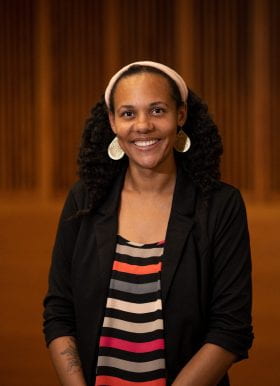
Seanna Leath
Assistant Professor, Psychological and Brain Sciences Dept.
PhD, University of Michigan
- Email: leath@wustl.edu
Seanna Leath's research focuses on variation in the family and school-based experiences of Black women and girls, with a particular focus on identity development and wellbeing. She uses healing justice frameworks and community-based methodologies to examine topics related to intersectionality, discrimination and stigma, and sociocultural practices within Black families.
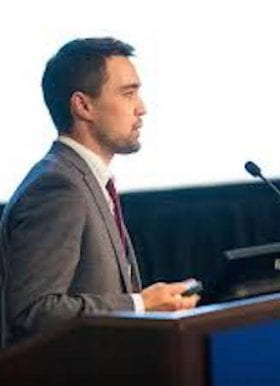
Zachariah Reagh
Assistant Professor, Psychological & Brain Sciences
PhD, University of California, Irvine
- Email: zreagh@wustl.edu
Reagh’s research is motivated by two main questions: (1) How does the human brain parse, store, and retrieve dynamic experiences, like those we encounter in our everyday lives? (2) How do these processes change in healthy aging and with age-related pathology, such as Alzheimer’s disease? To answer these questions, the Cognitive Neuroscience of Memory and Aging (CNMA) Lab uses realistic stimuli (such as movies and stories) in combination with behavioral experiments and neuroimaging techniques. Recent studies in the lab focus on distinct contributions of different brain networks to building memories for events, and selective vulnerabilities of these networks in neurocognitive aging.
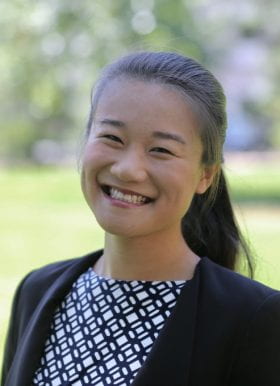
Jessie Sun
Assistant Professor, Psychology and Brain Sciences
PhD, University of California, Davis
- Email: sjessie@wustl.edu
Jessie Sun's research examines two fundamental aspects of the good life—well-being and morality—in real-world contexts. Specifically, her research aims to understand how people can balance the pursuit of personal well-being with broader moral concerns. Towards this end, she has three main lines of research. First, she examines which kinds of social interactions matter for well-being, and whether different people benefit more from different kinds of social interactions. Second, she studies the causes and consequences of moral improvement. Third, she investigates the psychological connections and tradeoffs between well-being and morality. She uses a range of naturalistic methods to study people in real-world contexts, including experience sampling, audio recordings of people’s everyday conversations, informant reports, and daily life interventions.
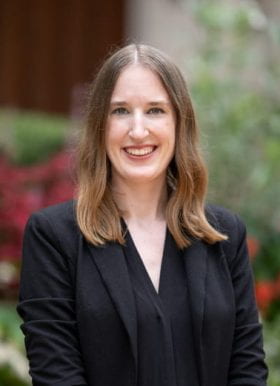
Emily Willroth
Assistant Professor, Psychology and Brain Sciences
PhD, University of California, Berkeley
- Email: emily.w@wustl.edu
Emily Willroth’s research focuses on well-being and health across the lifespan. Specifically, her current research examines how different components of well-being (e.g., emotion, life satisfaction, sense of purpose) vary and change across time, both in the short-term from moment-to-moment and in the long-term across the adult lifespan. She applies insights from this research to examine links between well-being and important health outcomes in middle and older adulthood, such as chronic illness, mortality, and dementia risk.
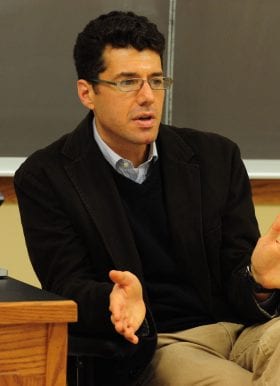
Jeffrey Zacks
Professor and Chair, Psychological & Brain Sciences
PhD, Stanford University
- Email: jzacks@wustl.edu
Jeff Zacks’s laboratory studies human perception, thinking, and memory using converging cognitive neuroscience methods. Research in the lab explores two main areas – how we perceive and represent temporal structure in everyday activity and how we process spatial relationships between the body and external objects. Research methods combine behavioral experimentation, eye-tracking, functional neuroimaging studies, and information technology design. We work with large stimulus corpora and large behavioral and neurophysiological datasets drawn from healthy adults and children, and people with neurological and psychological disorders.